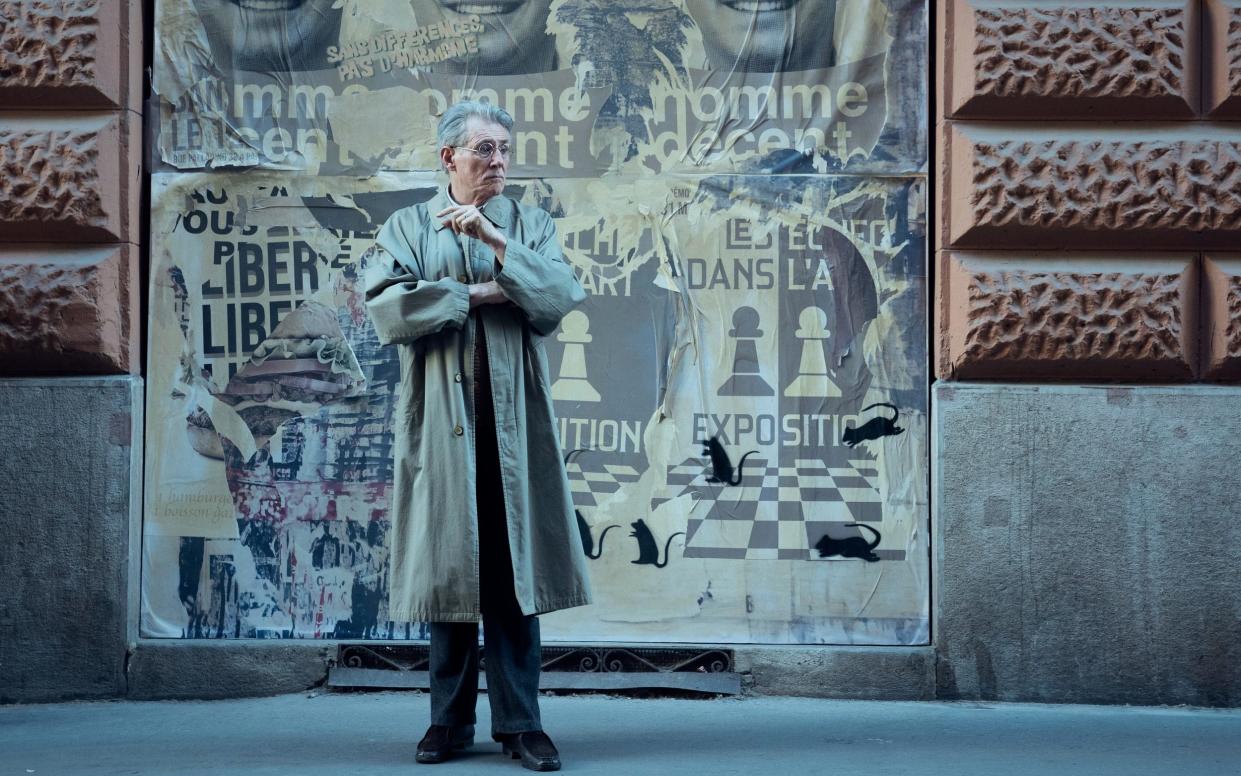Dance First, review: this bizarre Samuel Beckett biopic is a quiet disaster

“A play in which nothing happens, twice” was how the Irish critic Vivian Mercier memorably described Waiting For Godot shortly after its US premiere – and to be clear, Mercier meant it as a compliment. This quietly disastrous film about the life of its writer, Samuel Beckett, suffers from the opposite problem: here, far too much happens, all of it amounting to zip.
Mechanically directed by James Marsh, who portrayed the life of Stephen Hawking so movingly in The Theory of Everything, Dance First presents an uninspired clod-hop through its subject’s life, while showing barely a flicker of interest in the extraordinary plays, poems and prose that it yielded. The title is a partial Godot quote – “Perhaps he could dance first and think afterwards,” Estragon says of the noosed slave Lucky – but here the line is pared down and unaccountably given to Beckett himself, as a sort of self-help slogan we’re told he once passed on to a student.
Beckett himself – played in middle age by Gabriel Byrne – is portrayed not as a silvering literary lion but a loveable curmudgeon whose antics are sometimes set to jaunty flute music. We meet him steeling himself to receive the 1969 Nobel Prize for Literature – one of a number of bizarre liberties taken by Neil Forsyth’s script, since in real life, Beckett pointedly avoided the ceremony. “Quelle catastrophe,” he mutters to his French wife Suzanne, played by Sandrine Bonnaire, in the stalls.

After storming on stage and wordlessly snatching the envelope – why? – he climbs up a lighting rig and into a tunnel by the ceiling. Tweedily-deedily-doo, trills the soundtrack, as if to say: classic Samuel! This takes him to a nonspecific tomb-like structure, where Byrne spends the next hour in gruff and (very) vaguely Godot-esque dialogue with his double, in between extended scenes from Beckett’s younger years.
A lot gets packed in here, none of it good. From the young Samuel’s strained relationship with his hyper-critical mother, the film barrels on to his early years in Paris working for James Joyce (a why-am-I-here performance from Aidan Gillen), his time in the French Resistance, and various formative friendships and affairs. But nothing we see suggests Godot, or at least the waiting for him, is on the way. Nevertheless, once it has been written, it is instantly declared a masterpiece by the BBC commissioner and theatre critic (and Beckett’s lover) Barbara Bray, played by Maxine Peake. “It’s a masterpiece,” she declares after reading the manuscript, so there you go.
The only other work to command an even semi-notable scrap of screen time is 1963’s Play: this Beckett could have ended up a bingo caller or chimney sweep with minimal screenplay adjustments. Quelle catastrophe is about right.
Cert 12A, 100 mins. In cinemas from November 3


